Fundamentos destacados: 67. El Tribunal de Justicia subraya, ante todo, que las autoridades judiciales están obligadas a ejercer el máximo margen de apreciación en relación con los asuntos de los que se ocupan, con el fin de preservar su imagen de jueces imparciales. Esa discreción debería disuadirlos de hacer uso de la prensa, incluso cuando se les provoque. Son las exigencias superiores de la justicia y la naturaleza elevada de la función judicial las que imponen ese deber.
68. El Tribunal de Justicia considera, al igual que la Comisión, que el hecho de que el Presidente del Tribunal de Justicia utilizara públicamente expresiones que implicaban que ya se había formado una opinión desfavorable del caso del demandante antes de presidir el tribunal que debía resolverlo, parece claramente incompatible con la imparcialidad exigida a todo tribunal, tal como se establece en el artículo 6, apartado 1, del Convenio. En efecto, las declaraciones del Presidente del Tribunal de Primera Instancia podían justificar objetivamente los temores del demandante en cuanto a su imparcialidad (véase, mutatis mutandis, la sentencia Ferrantelli y Santangelo c. Italia de 7 de agosto de 1996, Recueil 1996-III, p. 952, §§ 59 y 60)
[Traducción de LP]
67. The Court stresses, above all, that the judicial authorities are required to exercise maximum discretion with regard to the cases with which they deal in order to preserve their image as impartial judges. That discretion should dissuade them from making use of the press, even when provoked. It is the higher demands of justice and the elevated nature of judicial office which impose that duty.
68. The Court considers, as the Commission did, that the fact that the President of the court publicly used expressions which implied that he had already formed an unfavourable view of the applicant’s case before presiding over the court that had to decide it clearly appears incompatible with the impartiality required of any court, as laid down in Article 6 § 1 of the Convention. The statements made by the President of the court were such as to objectively justify the applicant’s fears as to his impartiality (see, mutatis mutandis, the Ferrantelli and Santangelo v. Italy judgment of 7 August 1996, Reports 1996-III, p. 952, §§ 59 and 60).
[Idioma original]
CASE OF BUSCEMI v. ITALY
(Application no. 29569/95)
In the case of Buscemi v. Italy,
The European Court of Human Rights (Second Section), sitting as a Chamber composed of:
Mr M. Fischbach, President,
Mr B. Conforti,
Mr G. Bonello,
Mr P. Lorenzen,
Mrs M. Tsatsa-Nikolovska,
Mr A.B. Baka,
Mr E. Levits, judges,
and Mr E. Fribergh, Section Registrar,
Having deliberated in private on 7 September 1999,
Delivers the following judgment, which was adopted on that date:
PROCEDURE
1. The case originated in an application (no. 29569/95) against the Italian Republic lodged with the European Commission of Human Rights (“the Commission”) under former Article 25 of the Convention for the Protection of Human Rights and Fundamental Freedoms (“the Convention”) by an Italian national, Mr Vincenzo Ettore Buscemi (“the applicant”), on 23 June 1995. The applicant presented his own case. The Italian Government (“the Government”) were represented by their Agent, Mr U. Leanza.
2. On 4 December 1998 the Commission decided to bring the case before the Court (former Article 48 (a) of the Convention).
3. The application concerned the custody award made in respect of the applicant’s daughter and the related proceedings, the alleged bias on the part of the President of the Turin Youth Court and the alleged injury to the applicant’s reputation and family life as a result of statements made to the press by that judge. The applicant relied on Articles 8 and 6 § 1 of the Convention.
4. In accordance with Rule 52 § 1 of the Rules of Court, the President of the Court, Mr L. Wildhaber, assigned the case to the Second Section. The Chamber constituted within that Section included ex officio Mr B. Conforti, the judge elected in respect of Italy (Article 27 § 2 of the Convention and Rule 26 § 1 (a)), and Mr C.L. Rozakis, President of the Section (Rule 26 § 1 (a)). The other members appointed by the latter to complete the Chamber were Mr M. Fischbach, Mr P. Lorenzen, Mrs M. Tsatsa-Nikolovska, Mr A.B. Baka and Mr E. Levits (Rule 26 § 1 (b)).
5. Subsequently Mr Rozakis, who had taken part in the Commission’s examination of the case, withdrew from the case (Rule 28). Accordingly, Mr Fischbach replaced Mr Rozakis as President of the Chamber (Rule 12) and Mr G. Bonello was appointed to replace him as a member of the Chamber.
6. On 30 March 1999, after consulting the Agent of the Government and the applicant, the Court decided that there was no need to hold a hearing.
7. The Government submitted their memorial on 12 May 1999 and the applicant submitted his on 18 June 1999.
THE FACTS
A. The custody proceedings in respect of the applicant’s daughter
8. Mr Buscemi, who is an Italian national, was born in 1949 and lives in Cuneo, where he practises as a doctor.
9. The applicant and his girlfriend, C.F., had a daughter in 1985. Relations between the mother and father had rapidly deteriorated after their daughter was born and the relevant Youth Court had already had to intervene in the past.
10. Custody of the applicant’s daughter was initially awarded to the mother, from whom the applicant had separated in the meantime.
11. On 21 January 1994 the applicant applied to the Turin Youth Court for custody of his daughter to be formally awarded to him, since his ex-girlfriend had already given him custody de facto. She had signed a statement on 30 July 1993 acknowledging the applicant’s right to custody of the child.
12. The Turin Youth Court, presided over by Judge A.M.B., ordered an investigation and on 5 May 1994 decided to place the child in a children’s home. The court applied, inter alia, Article 333 of the Civil Code. At the same time it limited the mother’s access to once a week and the father’s to once a month.
[Continúa…]

![Principio de primacía de la realidad para verificar pago de alimentos en delito de omisión a la asistencia familiar [Exp. 8506-2023-30]](https://img.lpderecho.pe/wp-content/uploads/2025/04/Giammpol-Taboada-Pilco-LPDerecho-218x150.png)
![Condena a preso por no cumplir mandato judicial de alimentos antes de ingresar al penal [Exp. 8506-2023-30]](https://img.lpderecho.pe/wp-content/uploads/2024/06/POST-Giammpol-Taboada-Pilco-documento-firmas-generico-LPDerecho-218x150.jpg)


![En el caso de la Corte Suprema y cortes superiores, solo son precedentes vinculantes aquellas reglas nacidas dentro de un proceso judicial (un caso concreto) y posean carácter de ejecutoria suprema; por tanto, los acuerdos plenarios solo sirven como doctrina jurisprudencial de unificación de criterios [Exp. 04240-2024-HC/TC, ff. jj. 14-17]](https://img.lpderecho.pe/wp-content/uploads/2025/10/CASO-CORTE-SUPREMA-CORTES-SUPERIORES-LPDERECHO-218x150.jpg)

![Ley Orgánica del Registro Nacional de Identificación y Estado Civil (Ley 26497) [actualizada 2025]](https://img.lpderecho.pe/wp-content/uploads/2025/05/Ley-organica-del-registro-nacional-de-identificacion-y-estado-civil1-LPDERECHO-218x150.jpg)











![La prescripción de predios rústicos prevista en el DL 653 debe interpretarse de manera conjunta con el art. 950 del CC, de modo que solo es aplicable el plazo de cinco años si concurren también los requisitos de «justo título» y «buena fe» [Casación 5581-2023, f. j. 7.2]](https://img.lpderecho.pe/wp-content/uploads/2023/01/Logo-LP-con-fondo-guinda-LPDERECHO-218x150.png)

![[Balotario notarial] Instrumentos públicos notariales: protocolares y extraprotocolares](https://img.lpderecho.pe/wp-content/uploads/2025/09/INSTRUMENTO-PUBLICO-NOTARIAL-LPDERECHO-218x150.jpg)

![¿Es legalmente viable que la entidad obligue a un servidor civil a laborar en horarios y días no habituales (como feriados o días no laborables) sin que dicha condición haya sido comunicada previamente? [Informe Técnico 00500-2015-Servir-GPGSC]](https://img.lpderecho.pe/wp-content/uploads/2022/12/trabajo-remoto-documento-servir-LPDerecho-218x150.png)
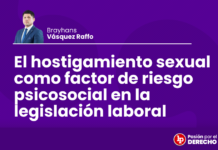
![El derecho a vacaciones anuales, corresponde a todo trabajador que haya completado un año de servicios continuos, equivalente a un minimo de seis dias laborales, sin importar el tipo o tiempo de jornada de trabajo realizad (doctrina jurisprudencial) [Casación 35267-2023, Lima]](https://img.lpderecho.pe/wp-content/uploads/2024/04/vacaciones-descanso-laboral-LPDerecho-218x150.jpg)




![Texto Único Ordenado de la Ley General de Cooperativas [Decreto Supremo 001-2026-Produce]](https://img.lpderecho.pe/wp-content/uploads/2023/01/ministerio-de-la-produccion-LPDerecho-218x150.png)

![Ley de Delitos Informáticos (Ley 30096) [actualizada]](https://img.lpderecho.pe/wp-content/uploads/2024/08/ley-de-delitos-informaticos-ley-30096-actualizada-LPDERECHO-218x150.jpg)
![Código Civil peruano [actualizado 2026]](https://img.lpderecho.pe/wp-content/uploads/2024/05/VENTA-OFICIAL-CODIGO-CIVIL-2024-LPDERECHO-218x150.jpg)
![Código Procesal Penal peruano [actualizado 2026]](https://img.lpderecho.pe/wp-content/uploads/2024/02/VENTA-CODIGO-PENAL-BANNER-POST-TAPA-DURA-LPDERECHO-218x150.jpg)
![Código Penal peruano [actualizado 2026]](https://img.lpderecho.pe/wp-content/uploads/2024/05/VENTA-CODIGO-PENAL-LPDERECHO-218x150.jpg)
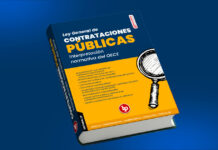

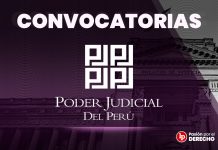
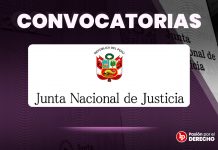



![[VÍDEO] ¿Quieres postular a la Fiscalía? Estas son las preguntas que hacen en las entrevistas](https://img.lpderecho.pe/wp-content/uploads/2021/10/postular-fiscalia-preguntas-entrevista-LP-218x150.jpg)


![EXP. N.° 0022-2009-PI/TC LIMA GONZALO TUANAMA TUANAMA Y MÁS DE 5000 CIUDADANOS SENTENCIA DEL TRIBUNAL CONSTITUCIONAL En Lima, a los 09 días del mes de junio de 2010, el Tribunal Constitucional en sesión de Pleno Jurisdiccional, con la asistencia de los magistrados Mesía Ramírez, Beaumont Callirgos, Vergara Gotelli, Landa Arroyo, Calle Hayen, Eto Cruz y Álvarez Miranda, pronuncia la siguiente sentencia con los fundamentos de voto de los magistrados Vergara Gotelli y Landa Arroyo, que se agregan. ASUNTO Demanda de Inconstitucionalidad interpuesta por Gonzalo Tuanama Tuanama, en representación de más de 5000 ciudadanos contra el Decreto Legislativo N.° 1089. DEMANDA Y CONTESTACIÓN a) Demanda contra el Decreto Legislativo N.° 1089, que regula el Régimen Temporal Extraordinario de Formalización y Titulación de Predios Rurales Con fecha 01 de julio de 2009, se interpone demanda de inconstitucionalidad contra el Decreto Legislativo N.° 1089, que regula el Régimen Temporal Extraordinario de Formalización y Titulación de Predios Rurales, publicada en el diario oficial El Peruano el 28 de junio de 2008. Los demandantes refieren que “'sin entrar al fondo del contenido de la norma”, ésta fue promulgada sin efectuar ninguna consulta previa e informada a los pueblos indígenas, tal como lo ordena el Convenio 169 de la Organización Internacional De Trabajo (OIT), afectándose con ello los derechos fundamentales de los pueblos Indígenas, como el derecho a la consulta previa y el derecho colectivo al territorio ancestral, establecidos en los artículos 6, 15, 17 del mencionado convenio. De igual forma, expresan que no se tomaron en cuenta los artículos 19, 30 y 32 de la Declaración de las Naciones Unidas sobre los Derechos de los Pueblos Indígenas (DNUDPI) aprobado por la Asamblea General de la Organización de Naciones Unidas. Alegan que con dicha norma se afectan otros derechos establecidos en el Convenio N.° 169, como el derecho sobre las tierras de los pueblos indígenas (artículos 13 al 19), en el considerando que no se tomaron en cuenta medida que garanticen la protección de sus derechos de propiedad y posesión. Refieren que se afecta también el derecho a la libre determinación de las comunidades nativas, previsto en el artículo 17 del Convenio, que declara el respeto de sus formas tradicionales de transmisión de sus territorios. Por último, alegan que se estaría vulnerando lo previsto en el artículo 19 del Convenio en cuanto se afecta el derecho al desarrollo de políticas agrarias adecuadas para los pueblos indígenas. [Continúa...] Descargue la resolución aquí](https://img.lpderecho.pe/wp-content/uploads/2023/01/Logo-LP-con-fondo-guinda-LPDERECHO-1068x561.png)

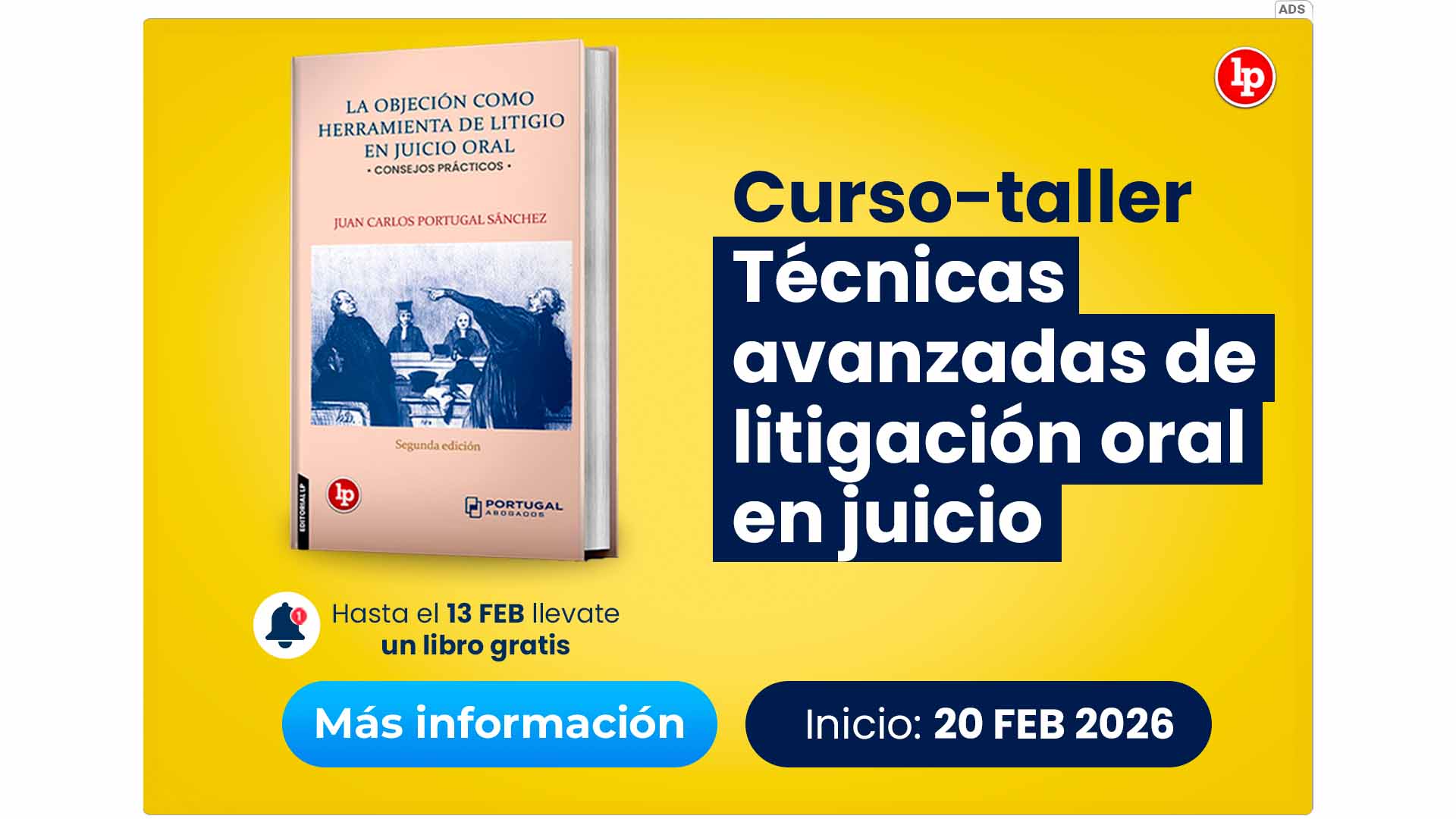
![Nombre del año 2026: Año de la Esperanza y el Fortalecimiento de la Democracia [Decreto Supremo 011-2026-PCM]](https://img.lpderecho.pe/wp-content/uploads/2022/12/palacio-gobierno-1-LPDerecho-324x160.png)

![Código Penal peruano [actualizado 2026]](https://img.lpderecho.pe/wp-content/uploads/2024/05/VENTA-CODIGO-PENAL-LPDERECHO-100x70.jpg)
![Código Procesal Penal peruano [actualizado 2026]](https://img.lpderecho.pe/wp-content/uploads/2024/02/VENTA-CODIGO-PENAL-BANNER-POST-TAPA-DURA-LPDERECHO-100x70.jpg)

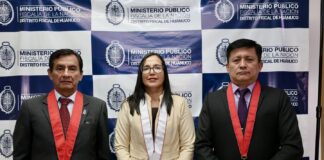




![Nombre del año 2026: Año de la Esperanza y el Fortalecimiento de la Democracia [Decreto Supremo 011-2026-PCM]](https://img.lpderecho.pe/wp-content/uploads/2022/12/palacio-gobierno-1-LPDerecho-100x70.png)





![[Corte IDH] Voto concurrente: Impunidad de las leyes de amnistía debe limitarse en la mayor medida posible, ya que implica el ocultamiento de las más severas violaciones a los derechos humanos, las cuales menosprecian la dignidad del ser humano y repugnan la conciencia de la humanidad [Castillo Páez vs. Perú, ff. jj. 7-8]](https://img.lpderecho.pe/wp-content/uploads/2020/02/Corte-IDH-LP-324x160.png)